 Your new post is loading...
 Your new post is loading...
It's important to recognize that a growth mindset is an overall paradigm for personal development rather than a pedagogical tool for measuring academic accomplishment. 5 Growth Mindset PracticesIn their groundbreaking book, Professional Learning Communities at Work, Richard DuFour and Robert Eaker say it clearly when pointing out the issue that comes about when change initiatives are considered "a task to complete rather than an ongoing process." If we really want to improve our schools, our work, and the education of our students, we can do so by adopting a new mindset -- for everyone -- that would include: - Being humble enough to accept that there are things about ourselves and our practices that can improve
- Becoming part of professional teams that value constructive critique instead of criticism
- Treating setbacks as formative struggles within the learning process instead of summative failures
- Realizing the restrictive role that timelines can play in reaching high standards, and using foundational philosophies such as Universal Design for Learning (UDL) to map systems so that everyone's growth is supported
- Create flexible grouping at all times so that nobody's trapped in any one course level or particular type of work.
Learn more / En savoir plus / Mehr erfahren: http://www.scoop.it/t/21st-century-learning-and-teaching/?&tag=Growth+Mindset
Via Ana Cristina Pratas, Miloš Bajčetić, Gust MEES
During this time of significant educational change, we are forced to ask ourselves, what is the role of the teacher?
Teachers continue to be central to learning, but the role is changing significantly. Our children still need to develop real skills and real knowledge, but they also need to be self-reliant, resilient, and fully capable of re-inventing themselves. This means students must learn how to self-direct their learning.
So if students are self-directing their learning, what's the role of the teacher?
Teachers build the curriculum/lessons with the individual student based on his/her needs and interests rather than move through a fixed curriculum en masse.
Teachers provide the experiences and tools to access new knowledge in specific areas of interest as facilitators of individual pathways, rather than being a provider of the content or expert in one or every area,Teachers become experts in how people learn, not only in teaching.
Teachers support a community of learners in teams, possibly of multiple ages, rather than alone in classrooms with fixed grades of students.
Teachers have more autonomy over their daily schedule, and can be flexible to adjust their schedules to support student needs.
Teachers provide opportunities for real-world, connected, practical learning rather than isolated academics.
These are the types of changes in the teacher's role that are fundamental to developing students who are capable of independent learning and reinvention in a rapidly changing world.
Learn more / En savoir plus / Mehr erfahren: https://gustmees.wordpress.com/2013/05/25/so-whats-the-change-for-teachers-in-21st-century-education/
Via Gust MEES
For years, Finland has been the by-word for a successful education system, perched at the top of international league tables for literacy and numeracy. . Pasi Silander, the city’s development manager, explained: “What we need now is a different kind of education to prepare people for working life. . “Young people use quite advanced computers. In the past the banks had lots of bank clerks totting up figures but now that has totally changed. . “We therefore have to make the changes in education that are necessary for industry and modern society.” . Subject-specific lessons – an hour of history in the morning, an hour of geography in the afternoon – are already being phased out for 16-year-olds in the city’s upper schools. They are being replaced by what the Finns call “phenomenon” teaching – or teaching by topic. For instance, a teenager studying a vocational course might take “cafeteria services” lessons, which would include elements of maths, languages (to help serve foreign customers), writing skills and communication skills. . More academic pupils would be taught cross-subject topics such as the European Union - which would merge elements of economics, history (of the countries involved), languages and geography. .
Via Gust MEES, John Rudkin, Shaona Williams, Jim Lerman
21 ways to unlock creative genius | #Creativity #Infographic
By teaching students these skills in an authentic, applicable way, will they see each other differently? It’s worth finding out. With so many curricular and time restraints on teachers, how can we be expected to explicitly teach empathy in a meaningful way?
A Definition Of Empathy
Webster’s dictionary defines empathy as: the action of understanding, being aware of, being sensitive to, and vicariously experiencing the feelings, thoughts, and experience of another of either in the past or present without having the feelings, thoughts, and experience fully communicated in an objectively explicit manner; also: the capacity for this. Learn more / En savoir plus / Mehr erfahren:
http://www.scoop.it/t/21st-century-learning-and-teaching/?tag=Empathy
Via Gust MEES, Yashy Tohsaku
False growth mindset is saying you have growth mindset when you don’t really have it or you don’t really understand [what it is]. It’s also false in the sense that nobody has a growth mindset in everything all the time. Everyone is a mixture of fixed and growth mindsets. You could have a predominant growth mindset in an area but there can still be things that trigger you into a fixed mindset trait. Something really challenging and outside your comfort zone can trigger it, or, if you encounter someone who is much better than you at something you pride yourself on, you can think “Oh, that person has ability, not me.” So I think we all, students and adults, have to look for our fixed-mindset triggers and understand when we are falling into that mindset.
I think a lot of what happened [with false growth mindset among educators] is that instead of taking this long and difficult journey, where you work on understanding your triggers, working with them, and over time being able to stay in a growth mindset more and more, many educators just said, “Oh yeah, I have a growth mindset” because either they know it’s the right mindset to have or they understood it in a way that made it seem easy. Learn more / En savoir plus / Mehr erfahren: http://www.scoop.it/t/21st-century-learning-and-teaching/?tag=Growth+Mindset https://gustmees.wordpress.com/2016/11/14/pssst-the-most-important-in-education-understanding/ https://gustmees.wordpress.com/2016/11/01/getting-ready-for-modern-education-first-try-to-understand-what-it-is/
Via Gust MEES
“[Adolescence is] a stage of life when we can really thrive, but we need to take advantage of the opportunity,” said Temple University neuroscientist Laurence Steinberg at a Learning and the Brain conference in Boston. Steinberg has spent his career studying how the adolescent brain develops and believes there is a fundamental disconnect between the popular characterizations of adolescents and what’s really going on in their brains.
Because the brain is still developing during adolescence, it has incredible plasticity. It’s akin to the first five years of life, when a child’s brain is growing and developing new pathways all the time in response to experiences. Adult brains are somewhat plastic as well — otherwise they wouldn’t be able to learn new things — but “brain plasticity in adulthood involves minor changes to existing circuits, not the wholesale development of new ones or elimination of others,” Steinberg said. The adolescent brain is exquisitely sensitive to experience,” Steinberg said. “It is like the recording device is turned up to a different level of sensitivity.” That’s why humans tend to remember even the most mundane events from adolescence much better than even important events that took place later in life. It also means adolescence could be an extremely important window for learning that sticks. Steinberg notes this window is also lengthening as scientists observe the onset of puberty happening earlier and young people taking on adult roles later in life. Between these two factors, one biological and one social, adolescence researchers now generally say the period lasts 15 years between the ages of 10 and 25. Learn more / En savoir plus / Mehr erfahren: http://www.scoop.it/t/21st-century-learning-and-teaching/?tag=Brain Use #Andragogy UP from 11 years: https://gustmees.wordpress.com/2015/05/13/andragogy-adult-teaching-how-to-teach-ict/
Via Gust MEES, John Rudkin
|
21 ways to unlock creative genius | #Creativity #Infographic
Teacher professional learning is of increasing interest as one way to support the increasingly complex skills students need to learn in preparation for further education and work in the 21st century. Sophisticated forms of teaching are needed to develop student competencies such as deep mastery of challenging content, critical thinking, complex problem-solving, effective communication and collaboration, and self-direction. In turn, effective professional development (PD) is needed to help teachers learn and refine the pedagogies required to teach these skills. However, research has shown that many PD initiatives appear ineffective in supporting changes in teacher practices and student learning. Accordingly, we set out to discover the features of effective PD. This paper reviews 35 methodologically rigorous studies that have demonstrated a positive link between teacher professional development, teaching practices, and student outcomes. We identify the features of these approaches and offer rich descriptions of these models to inform those seeking to understand the nature of the initiatives. Learn more / En savoir plus / Mehr erfahren: https://gustmees.wordpress.com/?s=coaching https://gustmees.wordpress.com/?s=professional+development
Via Gust MEES
An idea that is beginning to gain a lot of favour in educational circles at the moment is the notion of fixed versus growth mindsets, and how they might relate to students and learning. Based on the work of Stanford University psychologist, Carol Dweck, the idea of mindset is related to our understanding of where ability comes from. It has recently been seized upon by educators as a tool to explore our knowledge of student achievement, and ways that such achievement might be improved. Learn more / En savoir plus / Mehr erfahren: http://www.scoop.it/t/21st-century-learning-and-teaching/?&tag=Growth+Mindset
Via Gust MEES
What is professional development? It is pretty much anything that helps one develop professionally. At the heart, professional development is about growth and learning. In the field of education, it seems like many quickly think of educational opportunities that mimic what they see in their schools. As a result, they turn professional learning and education into schooling. The problem with that is that schooling is too limiting. In this age, there are many other exciting and high-impact learning opportunities for teachers that extend beyond traditional notions of schooling. When we hear the phrase “professional development,” certain practices likely come to mind, things like in-services and conferences. In the digital age, there are countless other opportunities for professional development and restricting one’s thoughts to just a few options limits our insight into what is possible for our students. With that in mind, here is a brainstorm of 20 options available to educators today. This is far from an exhaustive list, but it is enough to start exploring the possibilities. Feel free to suggest others in a comment to this post. Learn more: Professional Development: WHY EDUcators And TEACHers Can’t Catch UP THAT Quickly AND How-To Change It LEARNing To LEARN For MY Professional Development | I Did It MY Way
Via Gust MEES, Jim Lerman
Empowerment of people through Media and Information Literacy (MIL) is an important prerequisite for fostering equitable access to information and knowledge and promoting free, independent and pluralistic media and information systems. Media and Information Literacy recognizes the primary role of information and media in our everyday lives. It lies at the core of freedom of expression and information - since it empowers citizens to understand the functions of media and other information providers, to critically evaluate their content, and to make informed decisions as users and producer of information and media content. Learn more / En savoir plus / Mehr erfahren: http://www.unesco.org/new/en/communication-and-information/media-development/media-literacy/mil-as-composite-concept/
Via Gust MEES
21 ways to unlock creative genius | #Creativity #Infographic
— Breaking up and spacing out study time over days or weeks can substantially boost how much of the material students retain, and for longer, compared to lumping everything into a single, nose-to-the-grindstone session.
— Varying the studying environment — by hitting the books in, say, a cafe or garden rather than only hunkering down in the library, or even by listening to different background music — can help reinforce and sharpen the memory of what you learn.
— A 15-minute break to go for a walk or trawl on social media isn’t necessarily wasteful procrastination. Distractions and interruptions can allow for mental “incubation” and flashes of insight — but only if you’ve been working at a problem for a while and get stuck, according to a 2009 research meta-analysis.
— Quizzing oneself on new material, such as by reciting it aloud from memory or trying to tell a friend about it, is a far more powerful way to master information than just re-reading it, according to work by researchers including Henry Roediger III and Jeffrey Karpicke. (Roediger has co-authored his own book, “Make It Stick: The Science of Successful Learning.”)
Learn more / En savoir plus / Mehr erfahren: https://gustmees.wordpress.com/2016/03/14/time-the-most-important-factor-neglected-in-education/ http://www.scoop.it/t/21st-century-learning-and-teaching/?tag=Brain
Via Gust MEES, Dr. Caroline B. Laurens
Shifting to “Learn by Doing” Becker of NMC says just as the role of the teacher is switching from “sage on the stage” to one of a coach or guide, there is a shift from rote to active learning. To foster skills of teamwork and collaboration, online education is incorporating group projects and hands-on labs to help students think more critically and retain the content. Building on the concept of “learn by doing,” online education is expanding to connect students from around the world to learn together and meet professionals. Morris is also executive director of the Center for Interactive Learning and Collaboration, which partners with more than 200 cultural organizations, such as art museums, to offer real-time interaction with experts in various fields. This exposure can help answer student questions about the relevance of a geometry class, for instance. “To answer the questions of why you are doing it is key,” says Morris. “[Students] are motivated when they understand and have a reason to understand the material.” Learn more / En savoir plus / Mehr erfahren: http://www.scoop.it/t/21st-century-learning-and-teaching
Via Elizabeth E Charles, Yashy Tohsaku, Gust MEES
“Skills young people should be learning to be prepared for a career in 2020 include:
The ability to concentrate, to focus deeply.
The ability to distinguish between the “noise” and the message in the ever-growing sea of information. The ability to do public problem solving through cooperative work. The ability to search effectively for information and to be able to discern the quality and veracity of the information one finds and then communicate these findings well. Synthesizing skills (being able to bring together details from many sources). The capability to be futures-minded through formal education in the practices of horizon-scanning, trends analysis and strategic foresight.” Learn more / En savoir plus / Mehr erfahren: https://gustmees.wordpress.com/2015/05/26/what-are-the-skills-needed-from-students-in-the-future/
Via Gust MEES
|



 Your new post is loading...
Your new post is loading...

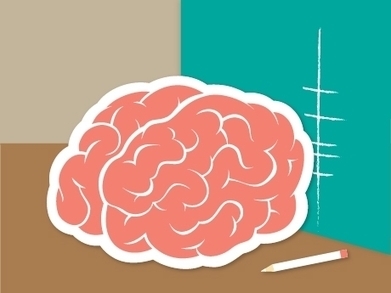

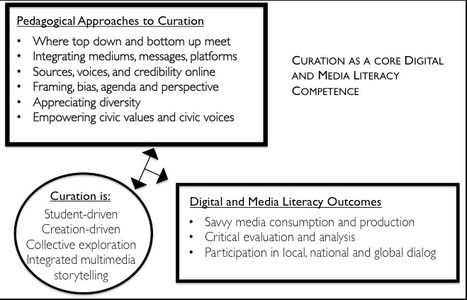



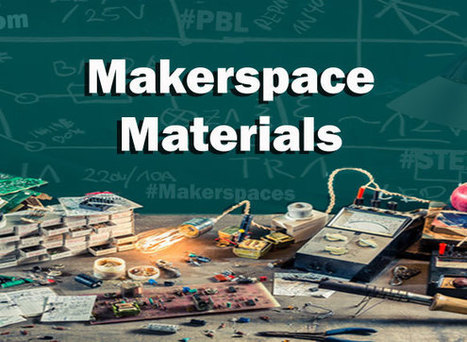

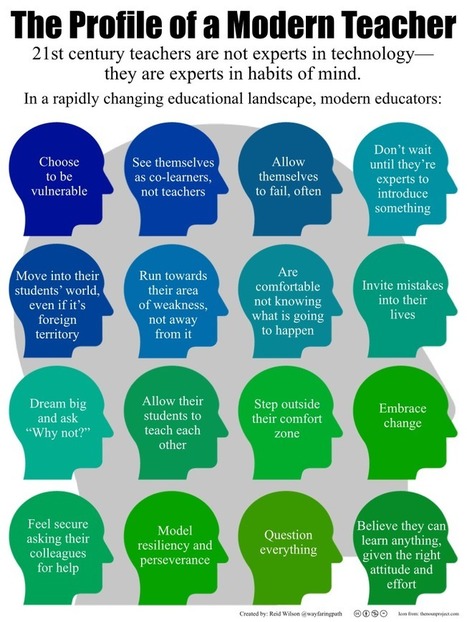

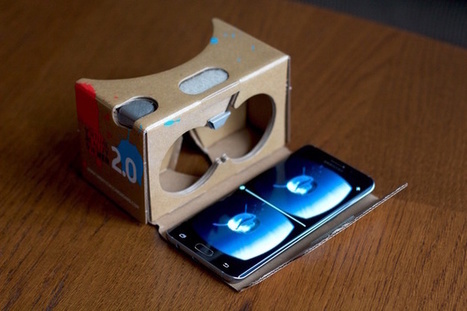
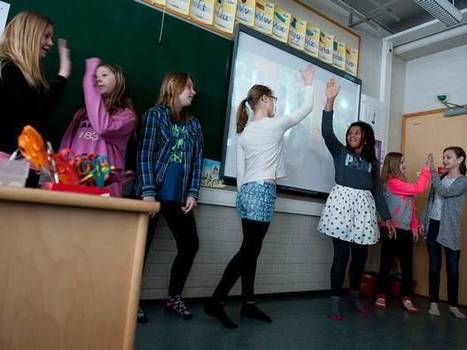



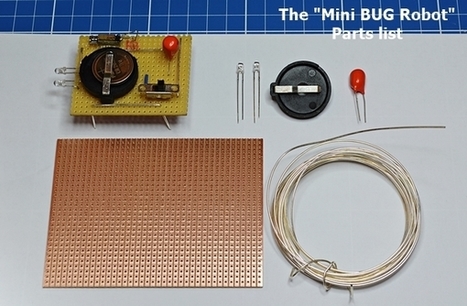
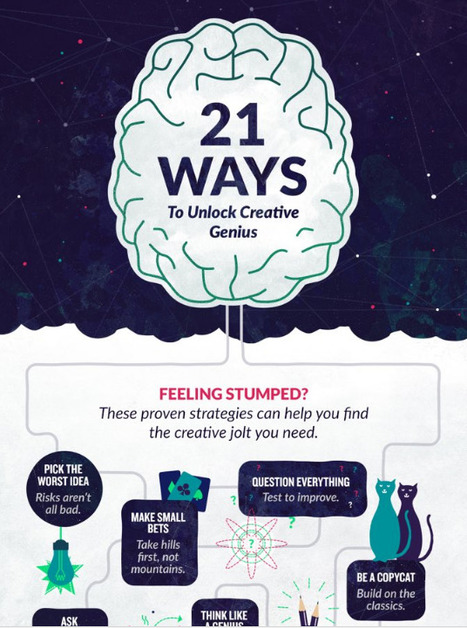

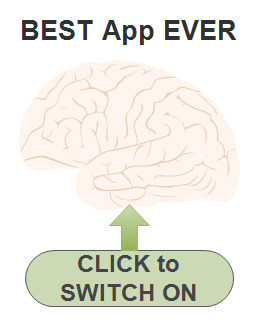
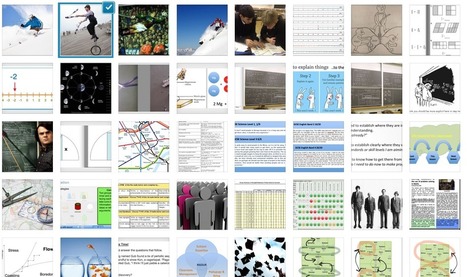

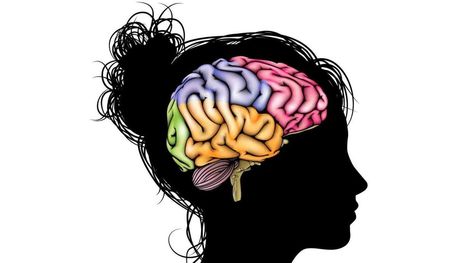


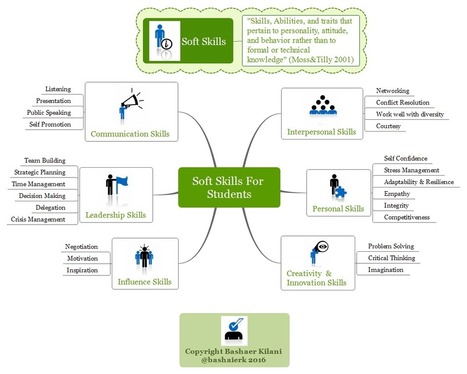



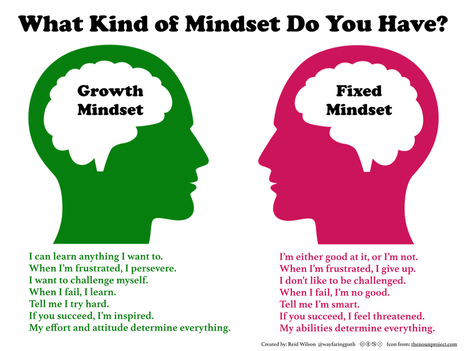






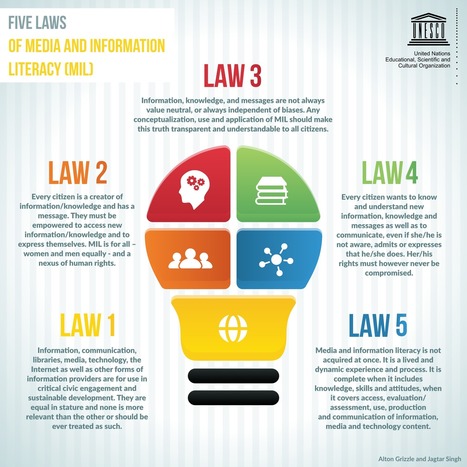
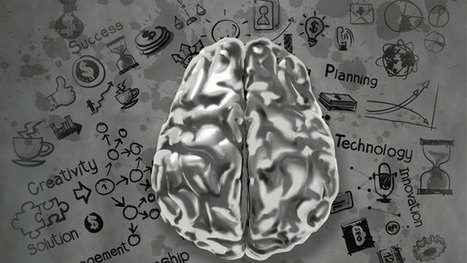
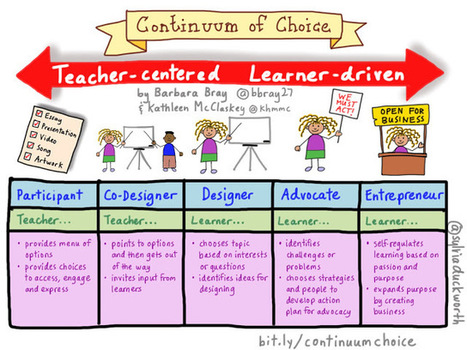


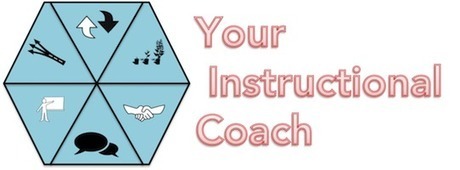



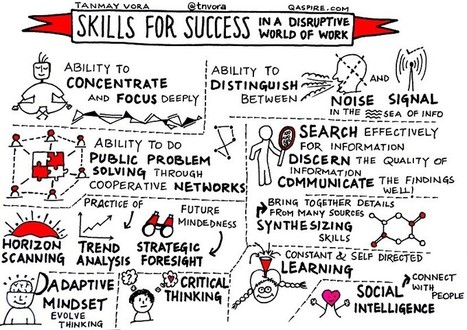








5 Growth Mindset Practices
In their groundbreaking book, Professional Learning Communities at Work, Richard DuFour and Robert Eaker say it clearly when pointing out the issue that comes about when change initiatives are considered "a task to complete rather than an ongoing process." If we really want to improve our schools, our work, and the education of our students, we can do so by adopting a new mindset -- for everyone -- that would include:
Learn more / En savoir plus / Mehr erfahren:
http://www.scoop.it/t/21st-century-learning-and-teaching/?&tag=Growth+Mindset